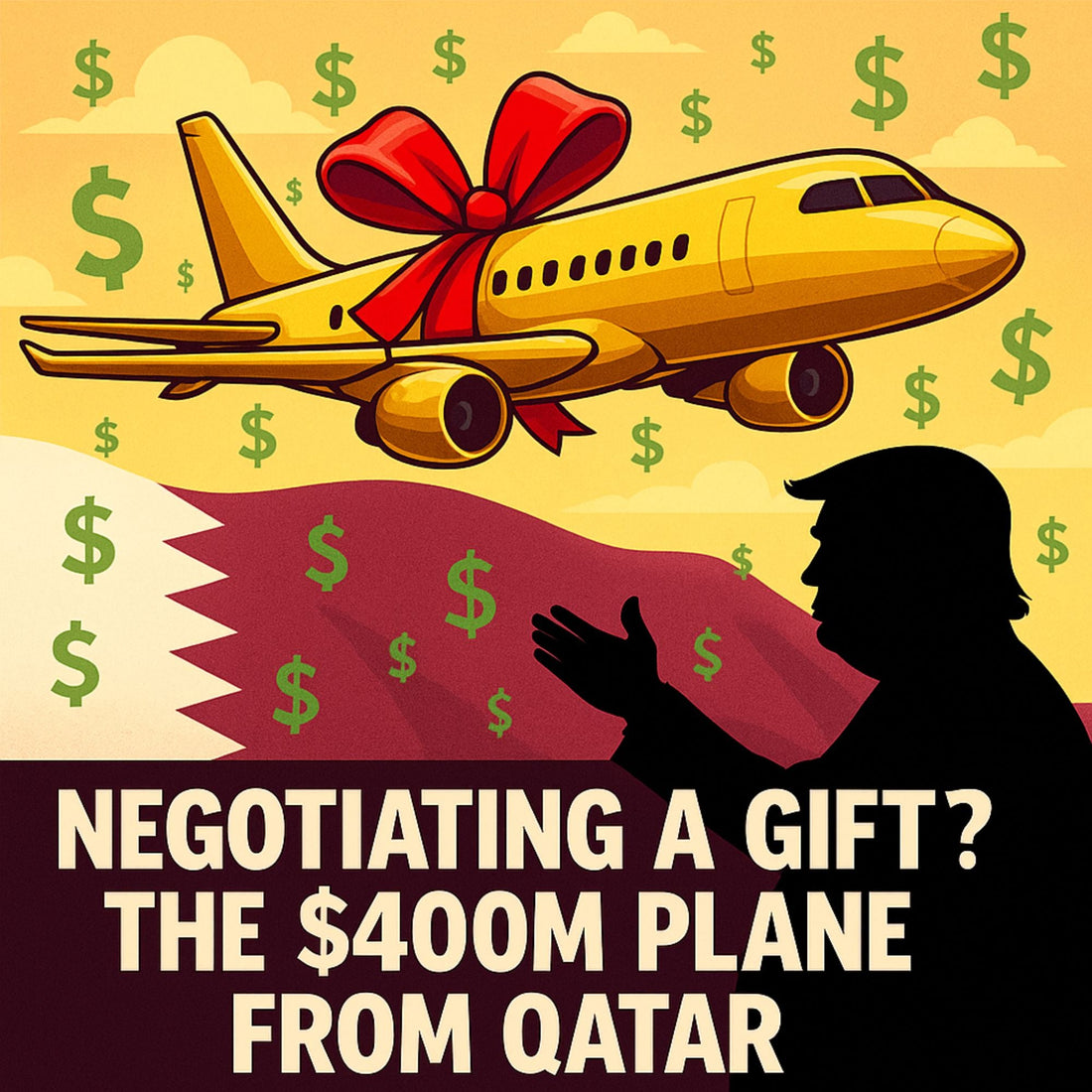
The Absurdity of Negotiating a Gift: The Case of Donald Trump and the $400 Million Plane from Qatar
Share
I. Introduction
Gifts are inherently simple yet deeply complicated gestures. Rooted in goodwill, they are meant to symbolize kindness, appreciation, or celebration without expectation of reciprocation. However, when the lines blur between generosity and transaction, the essence of gifting is lost. This brings us to the peculiar incident involving Donald Trump and a supposed $400 million airplane gift from Qatar. Adding an intriguing layer to this scenario is a conspiracy theory regarding missing aircraft carriers, creating a convoluted narrative that raises questions about the nature of gifts in political contexts.
II. Understanding Gifts and Negotiation
At its core, a gift is a voluntary act of giving, typically characterized by an absence of strings attached. In economic terms, gifts are often distinguished from transactions as they lack a direct quid pro quo. Socially, the act of gifting is imbued with emotional significance - it helps build bonds, express feelings, and enhance mutual respect among individuals.
When we begin to negotiate over a gift, we enter a perplexing territory where the original intention of goodwill becomes muddied. Turning a gift into a transactional exchange not only undermines the very essence of what a gift is but also invites ethical implications. Morally, negotiating a gift can raise questions about sincerity, trust, and the motivations behind the gesture.
III. The Trump-Qatar Plane Gift Incident
The incident in question involves Qatar allegedly gifting a $400 million plane to Donald Trump. This aircraft, a luxurious model, was presented amid a backdrop of evolving diplomatic relations. Public and political reactions to this announcement varied significantly, with critiques ranging from skepticism about the intent behind such a gift to concerns over its implications for U.S. foreign policy.
Trump's assertions claimed he received "nothing in return" for the aircraft, yet the language surrounding this situation—marked by negotiation over the supposed gift—contradicts this assertion. How can one receive a “gift” while simultaneously engaging in discussions that imply an expectation of return or favor?
IV. The Missing Aircraft Carriers Conspiracy Theory
To add another layer of intrigue, the conversation surrounding Trump and the Qatari plane has been intertwined with conspiracy theories about missing U.S. aircraft carriers in the Gulf region. These military assets bear significant weight in global diplomacy, and their mysterious absence raises eyebrows.
The timeline of these supposed disappearances is shrouded in ambiguity, with dates and circumstances that invite speculation. Some theorists suggest these missing aircraft carriers could be linked to the Trump-Qatar deal, questioning if military maneuvering was in play to bolster this diplomatic engagement. Such theories challenge the rationality of decisions made during Trump's presidency and invite scrutiny over military and foreign policy motivations.
When we break down the plausibility of these conspiracy theories, examining potential motives behind U.S. military strategies in this context becomes imperative. Historical precedents exist where political maneuvers intersect with military positioning, and questions arise about the veracity of the claims regarding these missing carriers.
V. Implications of Negotiating a Gift in This Context
The political and ethical ramifications of the Trump-Qatar incident are profound. When trust in public diplomacy wanes—due to the conflation of gifts and negotiations—so too does public perception of international relations. The consequences can ripple through U.S. foreign policy, affecting military strategies and trade agreements.
The absurdity of conflating gifts with negotiations threatens to erode the sanctity of diplomatic gestures. Such actions risk normalizing a transactional mindset in governance, wherein gestures meant to be emblematic of goodwill transform into bargaining chips. This shift could have long-lasting effects on international relations, potentially undermining the cooperative spirit that underpins diplomacy.
VI. Conclusion
In reflecting on the intricate dynamics between gifts and transactions, it becomes clear that understanding this distinction is crucial in political discourse. The absurdities presented in the Trump-Qatar situation and the surrounding conspiracy theories exemplify how easily goodwill can be misconstrued or manipulated.
As we navigate the complex landscapes of diplomacy, maintaining integrity in exchanges becomes essential. Recognizing the intrinsic value of gifts—free from negotiation—can help preserve the trust and sincerity needed to foster meaningful international relationships. Ultimately, the integrity of diplomatic exchanges hinges on our ability to differentiate between the genuine act of giving and the perfunctory nature of transactional dealings.
So, what are your thoughts on the plane gift from Qatar to Trump?
